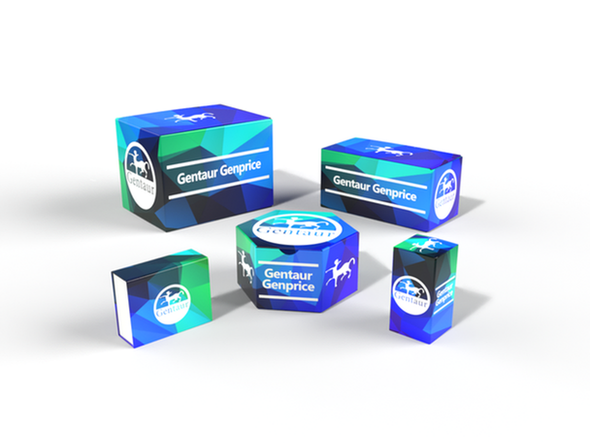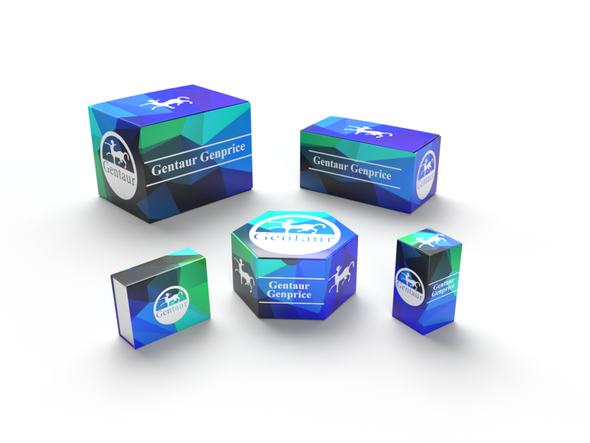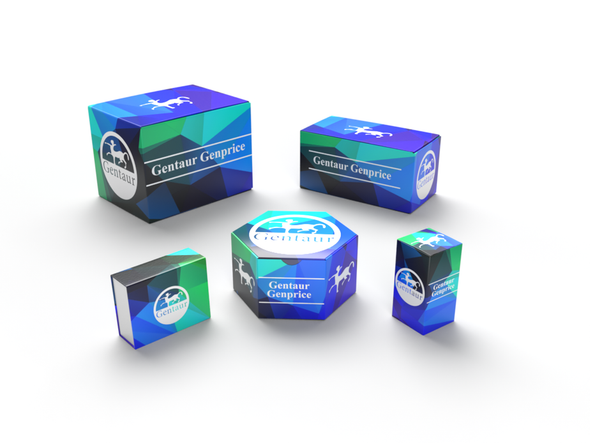Description
AGL Antibody | 61-376 | Gentaur UK, US & Europe Distribution
Host: Rabbit
Reactivity: Human
Homology: N/A
Immunogen: This AGL antibody is generated from rabbits immunized with a KLH conjugated synthetic peptide between 1479-1510 amino acids from the C-terminal region of human AGL.
Research Area: Cancer, Signal Transduction
Tested Application: WB, IF
Application: For WB starting dilution is: 1:1000
For IF starting dilution is: 1:10~50
Specificiy: N/A
Positive Control 1: N/A
Positive Control 2: N/A
Positive Control 3: N/A
Positive Control 4: N/A
Positive Control 5: N/A
Positive Control 6: N/A
Molecular Weight: 175 kDa
Validation: N/A
Isoform: N/A
Purification: This antibody is prepared by Saturated Ammonium Sulfate (SAS) precipitation followed by dialysis
Clonality: Polyclonal
Clone: N/A
Isotype: Rabbit Ig
Conjugate: Unconjugated
Physical State: Liquid
Buffer: Supplied in PBS with 0.09% (W/V) sodium azide.
Concentration: batch dependent
Storage Condition: Store at 4˚C for three months and -20˚C, stable for up to one year. As with all antibodies care should be taken to avoid repeated freeze thaw cycles. Antibodies should not be exposed to prolonged high temperatures.
Alternate Name: Glycogen debranching enzyme, Glycogen debrancher, 4-alpha-glucanotransferase, Oligo-1, 4-1, 4-glucantransferase, Amylo-alpha-1, 6-glucosidase, Amylo-1, 6-glucosidase, Dextrin 6-alpha-D-glucosidase, AGL, GDE
User Note: Optimal dilutions for each application to be determined by the researcher.
BACKGROUND: AGL is a glycogen debrancher enzyme which is involved in glycogen degradation. This enzyme has two independent catalytic activities which occur at different sites on the protein: a 4-alpha-glucotransferase activity and a amylo-1, 6-glucosidase activity. Mutations in the AGL gene are associated with glycogen storage disease although a wide range of enzymatic and clinical variability occurs which may be due to tissue-specific alternative splicing.







![AGL Antibody (Center) [APR31964G] AGL Antibody (Center) [APR31964G]](https://cdn11.bigcommerce.com/s-1rdwiq712m/images/stencil/590x590/products/63107/63411/gentaur-genprice__26005.1661610467__29809.1661628092__75433.1661676199__77988.1661684280__64362.1661692443__72977.1661866226.png?c=1)
![AGL Antibody (N-term) [APR05039G] AGL Antibody (N-term) [APR05039G]](https://cdn11.bigcommerce.com/s-1rdwiq712m/images/stencil/590x590/products/57579/57883/gentaur-genprice__26005.1661610467__29809.1661628092__75433.1661676199__77988.1661684280__64362.1661692443__22164.1661854106.png?c=1)
![AGL Antibody (C-term) [APR05038G] AGL Antibody (C-term) [APR05038G]](https://cdn11.bigcommerce.com/s-1rdwiq712m/images/stencil/590x590/products/57578/57882/gentaur-genprice__26005.1661610467__29809.1661628092__75433.1661676199__77988.1661684280__64362.1661692443__88704.1661854106.png?c=1)
